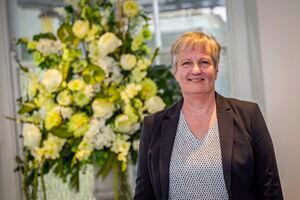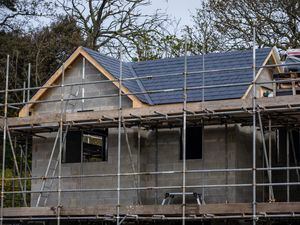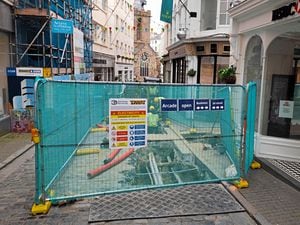Bailiwick’s reputation ‘to boost marriage tourism’
THE Bailiwick has potential for marriage tourism according to the Greffe’s head of registration, Jane Henaghen.

The introduction of the new marriage law on 1 March made it easier for non-residents to wed in Guernsey, Sark or Alderney.
So far 199 couples have registered marriage applications since 1 March, of which five are from outside the island.
‘I think Guernsey’s handling of Covid has enhanced its reputation as a safe place to be,’ said Mrs Henaghen.
Non-residents no longer have to spend the seven days prior to marriage on-island. Providing their wedding has been registered at the Greffe and advertised for 23 days beforehand, their only other commitment was to meet with a deputy registrar before the day. Applications could now be made electronically too.
Under the new law, people can now get married at different venues around the island, including hotels and homes, or outdoors, such as on the cliffs or a beach.
The new law is intended to update and simplify the administrative procedure required before marriage. It replaces the previous one, which dated from 1919.
Mrs Henaghen said procedures were in place to prevent illegal marriages.
Those having Church of England weddings must still give notice via the Ecclesiastical Court, but the Greffe processes all applications for marriages taking place anywhere in the Bailiwick whether civil or religious.
‘Notice of marriage can now be given up to 12 months before the date of marriage and we would encourage couples to give notice early,’ said Mrs Henaghen.
‘They must give notice at least four to six weeks before the wedding to allow time to process and post their details on the website for the 23 days required by law and issue the licence.’
Of the 199 registrations to date, 46 were forwarded by the Ecclesiastical Court so notices can be placed on the Royal Court website.
Fifteen applications were for marriages to be conducted by other denominations and 48 were for deputy registrars to conduct services in the Royal Court building or in Sark or Alderney.
Mrs Henaghen said 86 applications were for marriages to be conducted by the new category of authorised civil celebrants.
‘Such is the demand for their services that we have been asked if we can accept new applications from people who would like to become civil celebrants,’ she said.
Civil celebrants are not employed by the Registrar General and operate in a private capacity, either self-employed or through one of the businesses that provide wedding services.
Anyone interested in becoming a civil celebrant is asked to contact Mrs Henaghen or David Jehan on 225277. The closing date for applications is 26 July, with a view to interviews and training taking place in early August.
The introduction of the new marriage law had gone remarkably smoothly despite it coinciding with the pandemic, according to Mrs Henaghen.
‘We went into lockdown in January when we started training with the new celebrants and religious officials which meant it had to be done online and were still in lockdown when the law came into force,’ she said.





